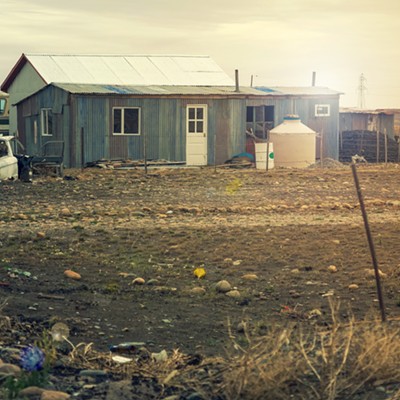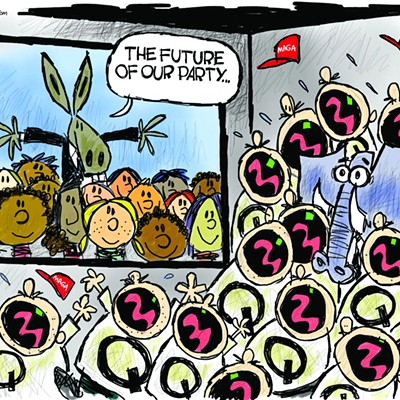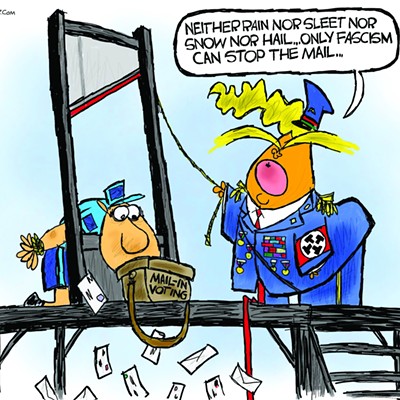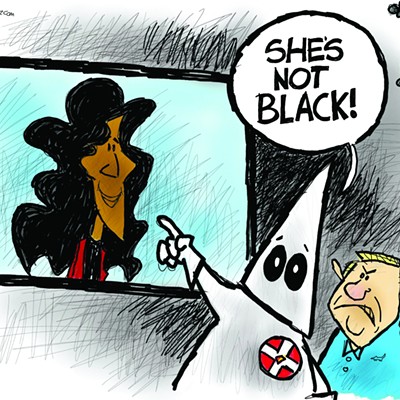It will likely join 1932, which saw the rise of the New Deal and the idea of Big Government as Fixer of Problems; 1952, which signaled the end of the New Deal and a lurch to the right as red-baiters like young Dick Nixon gained a foothold in Congress; and 1968, when a country reeling from the assassinations of Martin Luther King Jr. and Bobby Kennedy, barely two months apart, somehow chose the aforementioned Nixon as its leader. Some might argue that the election of 2000 was big, but it was so only because of something that came after and the ham-fisted and opportunistic way the occupant of the White House reacted to it.
Most of us can see the challenges that are squeezing us now, as well as those that lay in waiting. We are in a brief period of respite from the much-ballyhooed permanent Republican majority, but we must also realize that the GOP has won five of the last seven presidential elections, and seven of the last 10.
The Democrats have a nice, strong field; even also-rans like Joe Biden and Bill Richardson are attractive candidates. Meanwhile, the Republicans have a large field and a delightfully splintered membership. (South Carolina Gov. Mark Sanford said to Time of his party: "Republican self-doubt is so marked that if Jesus came back as a candidate, people would say, 'You know, I don't like his beard.'")
As an absolute political junkie, I have always looked forward to a nice, long primary season, with ebb and flow, misstep and correction, taking a standing eight count and then making a stunning rally. Long primary seasons gave candidates a chance to fine-tune their message, and it allowed the media to dig deep. (Just ask Gary Hart.) But we'll have almost none of that this year. An outrageous number of state political organizations, concerned that their party's nominee would already be settled upon by the time the primary express rolled into town, began leapfrogging each other to grab the earliest possible spots, perchance to have more influence on the process. The national parties shot back, threatening not to seat elected delegates at national conventions come summer. It's an ugly mess, which is why they're caucusing in Iowa today instead of in early February, as in election years past.
There is a simple solution: Have four or five regional primaries (Northeast, Midwest, South and West, for example), and rotate them around so that every four years, a different area gets to go first. But that only makes sense.
So we have Iowa today and New Hampshire on Tuesday. Then comes the real fun. Michigan jumped to Jan. 15. The national GOP, upset at the Michiganders for jumping ahead of the Feb. 5 line in the sand, will only seat half of the elected delegates at the national convention. The Dems, apparently twice as mad as the Republicans, won't seat any of the Michigan delegates. The exact same scenario will play out in Florida on Jan. 29 for the exact same reasons. Lawsuits will undoubtedly ensue.
Oddly enough, the season will still stretch into June, when South Dakota and Montana hold primaries on the 3rd.
A few other notes on the primaries:
· Arizona and about 22 other states hold primaries or caucuses on Feb. 5. It should make for wonderful late-night TV viewing. A group called Democrats Abroad also votes starting that day.
· The U.S. Virgin Islands and Guam each have nine delegates, but they're not selected by election or caucus, but rather by "other." Maybe it's by best tan.
· America's fifth territory, the Northern Marianas, might not send delegates to either convention, seeing as it's governed by something called the Covenant Party.
One last thing: Iowa and New Hampshire are hardly bellwethers for what is to come. In years in which there isn't a sitting president on the ballot, Iowa Democrats vote for the eventual nominee exactly 50 percent of the time. (In 1976, "Uncommitted" actually won.) It's exactly 50 percent for the Republicans as well. In New Hampshire, the numbers are better than 50 percent for both parties, but not by a lot. John McCain won in 2000, and in 1964, Barry Goldwater, Richard Nixon and Nelson Rockefeller all finished behind winner Henry Cabot Lodge.
I have no idea where this political season is going, and that's the fun of it. I'm not a betting man, but if I were, I'd stay away from Rudy Giuliani and Mike Huckabee on the GOP side. Only four of the 43 Presidents have had names that end in vowels (and only one ended in a vowel sound); in this case, "y" doesn't count as a vowel. Try to get them without looking them up.
Of course, we've never had a black president or a female one, either. Those odds, therefore, are considerably longer.










